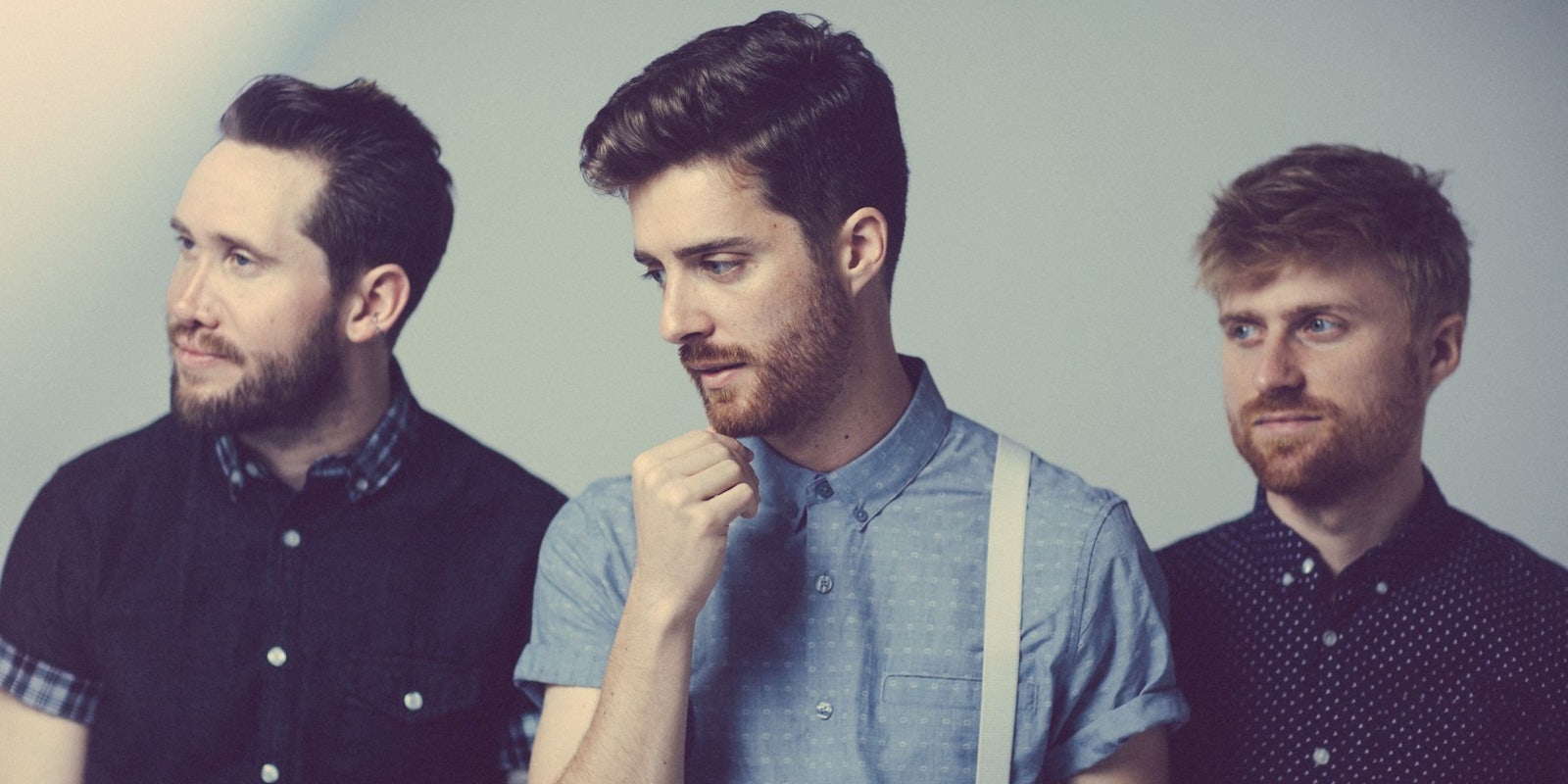We tend to give witty noncommittal answers to the oft-asked question, “What inspires you?” This time we decided to reminisce on writing-days-gone-by and dish out some specific examples of songs that intentionally or otherwise directly inspired the creation or arrangement of Jukebox the Ghost songs.
Tommy Siegel (guitar/vocals)
“Little Girls,” Oingo Boingo
This song, admittedly, has a pretty uncomfortable lyrical focus. But the first time I heard this, the amount of melody bottled in the frenetic energy blew me away. “Half Crazy” was my attempt to bottle that same frantic feel into a pop song.
“The Gates of Delirium,” Yes
I fell in love with this song in a deeply nerdy prog kick, and “The Sun (Interlude)” was my attempt to recreate something like the beginning of this song in a pop format (as you might guess, we cut a lot of it).
“Money Music,” Pretty and Nice
We toured with this fantastic band in 2011, and I remember watching them play this song well before it was released and thinking, God, that rhythmic hiccup in the verse is amazing, and trying to piece something together in the parking lot of a venue in Omaha, with Katy Perry’s “Teenage Dream” also swimming in my head. That eventually turned into “Say When.”
“Someone Great,” LCD Soundsystem
In 2011, LCD Soundsystem felt like the coolest band on the planet. I had an odd little acoustic song that I realized went pretty well with upbeat drums, and we eventually ended up with a quirky dance song called “Oh Emily,” in our best attempt to sound like LCD Soundsystem… Which, we admittedly don’t. At all.
“Third Planet,” Modest Mouse
The lyrical imagery in this song blew me away, and got me on a kick of imagining events surrounding the end of the world, which eventually blossomed into an entire rock opera-ish suite of songs, some of which made it on our first album and some of which didn’t. The point being, I wrote 10 songs because of this song and am probably still writing songs because of it.
“Someone to Watch Over Me,” Ella Fitzgerald
For a while I was using a Gershwin songbook as fodder for inspiration. Something in the sweetness and sadness of this song, along with some of the magical chord changes he uses, inspired “Man in the Moon” when I was feeling particularly wistful.
Jesse Kristin (drums)
“Misunderstood,” Wilco
When we were arranging the climactic section of “Dead,” I felt Wilco’s “Misunderstood” telling me it’s acceptable to let a soft, careful track fall from something cerebral and “thinky” to something muscular, physical, and reckless.
“Age of Consent,” New Order
A YouTube video of New Order’s Stephen Morris being a savage on the drums while the band played “Age of Consent” in the studio had a big impact on what I felt “real” drumming had to sound like in a pop-rock song. When we were arranging “Adulthood,” Ben’s consistent, pulsating piano rhythm instantly made me think of playing a shamelessly repetitive dance beat with conviction and intensity a-la-Morris, and I decided to channel his unrelenting human-drum-machine focus for this song just as I had witnessed it in the video.
“Temporarily Blind,” Built To Spill
A fun choppy little groove emerges from Built To Spills “Temporarily Blind” at 1:53, 2:40, 3:26. Three times is enough for one song, yet when it ends, I just want to hear the part again and again. It’s one of those parts, and it directly inspired the rock groove section in “The Stars” following the second chorus.
“Play The Game,” Queen
The very short open hi-hat accents over the snare.. cough.. the “PSST” sound on beats 2 and 4 in the verses of our song “Somebody” was inspired directly by almost every Queen song. “Play The Game” is a solid example of drummer Roger Taylor creating this easily achieved but distinct sound.
Ben Thornewill (vocals, piano)
“I’ve Got Rhythm,” Jacques Gauthe
I wanted to use the “I’ve Got Rhythm” chord progression (known as “rhythm changes”) in a pop song. So this in turn inspired “Victoria”—same chords in the verse, same chordal turn-around out of the chorus and the same bridge progression. BAM. I chose this recording because it has the chords clearly outlined up front for those of you who really want to geek out to it (the “Victoria” chord changes happen at about 1/4 the rate but the progression is the same).
“Chopin Nocturne C-Sharp – Lang Lang – Nocturne Op. post, KK IVa, No. 16 (20a), in C-Sharp Minor,” Frederic Chopin
I spent a lot of time reading through classical music, for entertainment and for inspiration. I was playing this piece and got to the end and loved the way it sounded so much I kept playing it and repeating it and started writing to it, and then it turned into the song “Summer Sun.”
“Good Day,” Jukebox the Ghost
This is a bit meta, but for our second record I tried to write a song with piano parts that were like the guitar parts in “Good Day.” Inverting the arrangement and the responsibilities of the piano/guitar and ended up with “Empire.”
“I’ll Be Home,” Harry Nilsson
I was listening to this song and this record on repeat when I wrote “The Spiritual.” Even beyond this song, the whole record has had and continues to have a huge influence on me and my writing.
Jukebox the Ghost’s new self-titled album, due Oct. 21 via Yep Roc Records, is available for digital and physical preorder. You can follow the band on tour and on Twitter.


